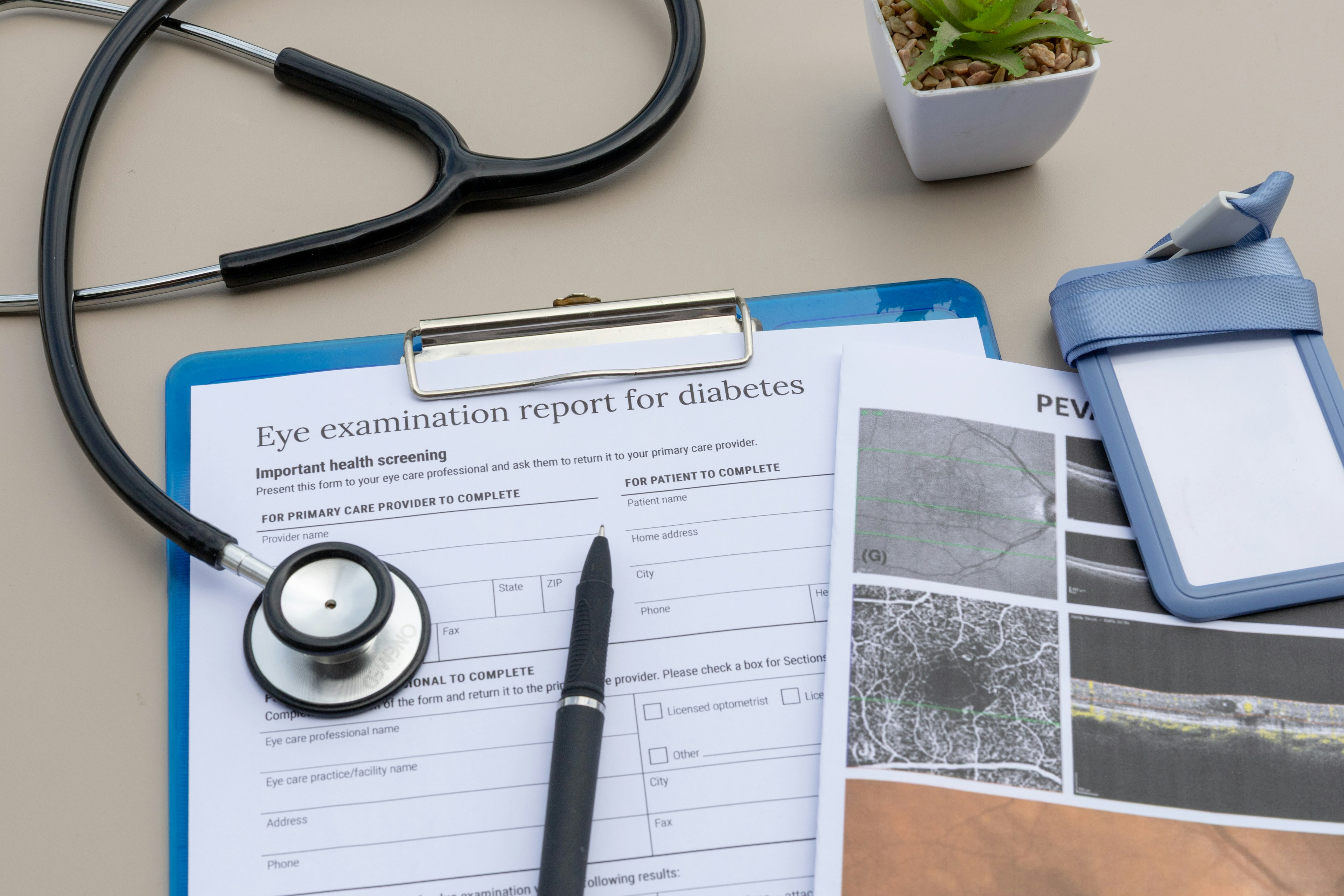Key Takeaways
Diabetic eye exams detect diabetes-related damage like retinopathy, glaucoma, and cataracts—often before symptoms appear.
They can sometimes reveal signs of diabetes before diagnosis by showing blood vessel changes in the retina.
Exams are quick, painless, and typically done yearly, using dilation, retinal imaging, and OCT scans.
Most insurance and Medicare plans cover them as medical care.
Regular exams are key to preventing vision loss and tracking diabetes control.
If you live with type 1 or type 2 diabetes, your eyes need more than a standard vision check. A diabetic eye exam is different from a routine eye exam because it looks specifically for changes caused by diabetes. After all, high blood sugar can damage the tiny blood vessels in the eyes, but early detection and care can prevent serious complications and protect your vision.
During this exam, your eye doctor checks for conditions such as diabetic retinopathy, glaucoma, cataracts, and macular edema. These problems may develop without noticeable symptoms, which is why regular diabetic eye exams are a critical part of your overall diabetes care.
Can an Eye Exam Detect Diabetes?
Yes, an eye exam can sometimes reveal signs of diabetes before a person even knows they have the condition. High blood sugar levels may damage small blood vessels in the retina, causing them to weaken, swell, or leak. During a routine exam, an eye doctor may notice these changes and recommend follow-up testing with your primary care provider.
This makes an eye exam not only an important tool for protecting your vision but also a potential early warning system for diabetes.
What to Expect During a Diabetic Eye Exam
A diabetic eye exam is simple, painless, and usually takes less than an hour. Here is what typically happens:
- Dilated eye exam: Eye drops widen your pupils so the doctor can see the back of your eye, including the retina and optic nerve.
- Retinal imaging: Special cameras capture detailed pictures of the retina, allowing for a closer look at changes caused by diabetes.
- Optical coherence tomography (OCT): This test uses light waves to create cross-sectional images of your retina, making it easier to spot swelling or damage.
It’s important to note that most patients with diabetes should have a comprehensive exam once a year. However, your doctor may recommend more frequent visits if you have signs of eye disease or poorly controlled blood sugar.
How Much Does a Diabetic Eye Exam Cost?
If you do not have insurance, a diabetic eye exam generally costs between $100 and $250. The final price depends on the clinic, location, and whether additional imaging or specialized tests are required.
Although it may seem like an added expense, skipping an exam could result in vision problems that are much more costly to treat later. Regular exams are an investment in your long-term health and independence.
Are Diabetic Eye Exams Covered by Insurance?
Yes. In most cases, diabetic eye exams are covered by insurance because they are considered medical care rather than routine vision care. That means health insurance will usually apply instead of vision insurance. Medicare also provides coverage for annual diabetic eye exams when performed by a qualified eye doctor. If you have both medical and vision insurance, it is important to check which plans are accepted so you understand any out-of-pocket costs.
Why Regular Diabetic Eye Exams Are So Important
Diabetes is one of the leading causes of preventable blindness in adults. Without proper monitoring, conditions such as diabetic retinopathy can silently progress until vision loss becomes permanent.
Thankfully, early detection through regular exams allows doctors to intervene before serious damage occurs. Treatments such as laser therapy, eye injections, or surgery are much more effective when disease is found early.
Beyond protecting your eyesight, regular exams also provide insight into how well your diabetes is being managed overall. Your eye health is closely connected to your heart, kidneys, and nerves, which means these appointments benefit your overall well-being.
Schedule Your Diabetic Eye Exam in Houston-Clear Lake
If you have diabetes, protecting your vision should be a top priority. Diabetic eye exams give you peace of mind and the best chance of catching problems before they progress into something more serious. Since diabetes is the leading cause of preventable blindness, staying on top of your eye care can make all the difference in preserving your eyesight.
Are you due for your next exam? Take the first step today and schedule an appointment with a trusted eye doctor in Webster, TX.





